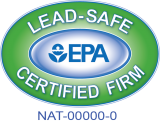Installing solar panels translates to many advantages: Tax breaks, lower energy costs, being environmentally friendly, and increased home value, to name a few. If all of these benefits made you take the plunge, you’re not alone: Since 2008, installations of solar panels in the United States have increased by a factor of 17, and today power more than five million homes.
After you install solar panels, you’ll need to perform regular maintenance, to help ensure they work as efficiently as possible. Here’s how.
How to Maintain Solar Panels On Your Roof
1. Wash Them.
Since solar panels lay flat, they won’t experience too much wear and tear. However, since they are outdoors, they are prone to dirt buildup (in addition to pollen and bird droppings). Although they’re still functional while dirty, too much surface dirt will interfere with their capacity to convert sunlight into energy.
To wash them, get up on your roof on an overcast or chilly day. If those two options are not feasible, do so as early in the morning, as possible, before it gets too hot. You only need to clean the top portion, and you can do so either by hosing them down, or wiping them with soap and water. Using a wiper or a small brush is more practical and efficient than using paper towels. It’s only necessary to do this twice a year. If you live in a particularly rainy area, you won’t have to worry as much about hosing them down.
2. Monitor Performance.
You can do this by installing a solar monitoring system. Once set up, you can track the panels’ energy usage through your computer, tablet, or phone. You’ll be able to see exactly how many kilowatts of electricity the panels are producing, as well as how much money you’re saving each month from your power bill. If you see that performance is going down, you’ll know that there’s an issue and that it’s time to take action.
3. Inspect them.
This one has to be done by a professional. Contact the company who installed your solar panels, to schedule yearly checks for any cracks, exposed wires, or potential issues with the hardware holding them up. In fact, many manufacturers will honor their warranty only if you schedule periodic inspections.
Other than these three items, you don’t have to lose any sleep over providing meticulous maintenance to your panels – yet another benefit of having this technology power your house.
Learn More about Solar Energy Panels With the Help of Allied Siding & Windows
If you’re a Texas resident and you’ve been thinking about installing solar energy panels, don’t hesitate to contact Allied Siding & Windows! Contact us for more information about our services or stop by one of our showrooms in Austin, Dallas, or Houston!









